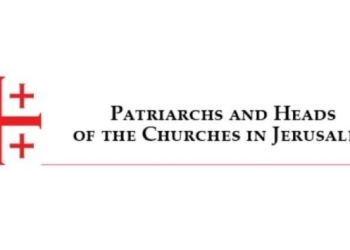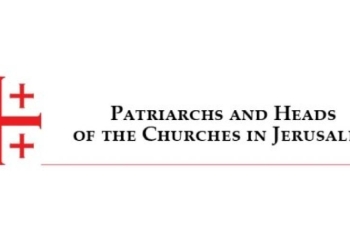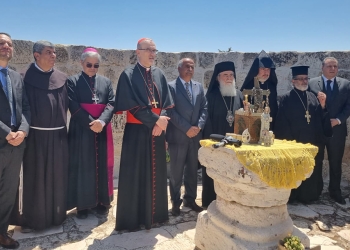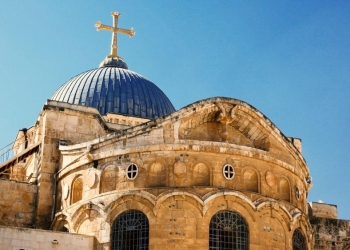And the Word became flesh and dwelt among us, and we have seen his glory, the glory as of a father’s only son, full of grace and truth. (John 1:14)
We, the Patriarchs and Heads of the Churches in Jerusalem, extend our greetings to Christians around the world with the same spirit of awe and wonder experienced by those present in Bethlehem at the Nativity of our Lord and Savior Jesus Christ.
As St. John the Evangelist would later proclaim, the birth of Christ was the glorious manifestation of God Incarnate, the Word-Made-Flesh, full of grace and truth. It revealed to humanity the deep and abiding love of God for all his people: that the Almighty would deign to be born among them, both fully human and fully divine.
In this act of compassion, Christ joined in the world’s suffering, enduring with the Holy Family the many struggles of life under occupation. These included threats of violence, forced registration, family displacement, and existence as refugees in a foreign land.
Similar sorrows and travails continue to afflict the world in our time, whether they be in Ukraine, Armenia, Syria, or throughout the Holy Land itself—to name only a few. In this regard, we express our special concern for those faithful who remain as the Christian remnant in the land of our Lord’s birth, as they fall under our own pastoral care.
In recent years, these Christians have increasingly faced assaults on their Free Exercise of Religion, including attacks against their person, defamation of their churches and cemeteries, unwarranted restrictions against their attendance in worship, and legal threats against their possession and management of church properties.
Such a disheartening atmosphere has led to a lack of hope, especially among our Christian youth, who increasingly feel unwelcome in the land where their ancestors have dwelt since even before the birth of the Church on Pentecost (Acts 2:11). As a result, many are leaving the region for places of greater opportunity, thereby diminishing the Christian presence further below its tiny two-percent minority of the general population.
To these youth, we offer the incarnational message of Christ’s birth as a beacon of hope, reminding us all that our Lord continues to suffer both with us and for us, leading us to new life in the light of his Risen Glory. Moreover, with the larger Body of Christ forming our Savior’s arms and legs in the world, our churches continue to offer places of solace, strength, and support through their worship services, their ministries of education and healthcare, their pilgrimage centers, and their opportunities for meaningful employment.
In this vein, we are thankful that Christians around the world are now returning on pilgrimage to the Holy Land in increasingly greater numbers. We encourage them to not only reverently visit the blessèd stones of the Holy Sites, but also to engage and support the “living stones” of the local Christian presence, whose families have helped build and tend those venerable sites across the centuries, down to the present day.
Similarly, we invite Christians around the globe to support adherence to the religious Status Quo, and to continue to work and pray for a just and lasting peace in the land of our Lord’s birth—as well as in the many war-torn regions of the world—that the blessèd message of hope first proclaimed by the angel to the shepherds around Bethlehem may more and more be realized throughout the earth: “Do not be afraid; for behold, I bring you good news of a great joy which will come to all the people: for to you is born this day in the city of David a Savior, who is the Messiah, the Lord.” (Luke 2:10-11).
—The Patriarchs and Heads of the Churches in Jerusalem




